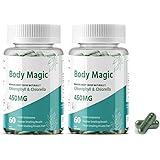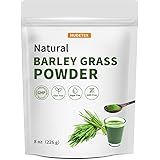Are you frequently feeling overwhelmed, struggling with sleep, or finding it difficult to manage your weight despite your best efforts? These experiences can often be linked to the body’s primary stress hormone, cortisol. While the accompanying video provides a moment of calm reflection, this article aims to delve deeper into understanding cortisol and exploring effective strategies for cortisol reduction.
Cortisol, often referred to as the “stress hormone,” is naturally produced by the adrenal glands. Its release is a crucial part of the body’s “fight or flight” response, mobilizing energy to help you respond to perceived threats. However, in our modern world, stressors are often chronic rather than acute, leading to prolonged elevation of cortisol levels. This sustained high cortisol can have numerous detrimental effects on overall health and well-being.
Understanding Cortisol: The Body’s Stress Regulator
The role of cortisol in the human body is multifaceted and essential for survival. It helps regulate blood sugar, reduces inflammation, assists in memory formation, and controls salt and water balance. Normally, cortisol levels are higher in the morning and gradually decrease throughout the day, following a diurnal rhythm. This natural cycle helps to regulate energy and sleep patterns.
When stress becomes chronic, this delicate balance can be disrupted. Instead of a temporary surge, cortisol levels may remain elevated for extended periods. This persistent high can signal to the body that it is perpetually under threat, leading to a cascade of negative health consequences. Therefore, understanding its function is the first step towards effective managing cortisol levels.
The Impact of Elevated Cortisol Levels
Prolonged exposure to high cortisol is associated with a range of health issues that can significantly impact quality of life. Research indicates that chronic stress, and its accompanying cortisol surge, can contribute to various physical and mental challenges. Awareness of these impacts is crucial for motivating efforts towards cortisol reduction strategies.
-
Weight Gain and Metabolism Disruption
It is often observed that elevated cortisol can contribute to increased appetite, particularly for high-sugar and high-fat foods. Studies have shown a correlation between high cortisol and increased abdominal fat, a type of fat linked to a higher risk of heart disease and type 2 diabetes. Furthermore, metabolic processes are often negatively affected, making weight management more challenging for many individuals.
-
Impaired Immune Function
While cortisol can initially reduce inflammation, chronic elevation is understood to suppress the immune system. This suppression can make the body more susceptible to infections and illnesses. A weakened immune response means that recovery from common colds and other ailments may take longer, impacting daily functioning.
-
Sleep Disturbances
The natural cortisol rhythm promotes wakefulness in the morning. When this rhythm is disrupted, with cortisol levels remaining high in the evening, sleep can be severely affected. Many people with elevated cortisol report difficulty falling asleep or staying asleep, leading to a cycle of fatigue and increased stress. Quality sleep is paramount for overall health, and its disruption by cortisol is a significant concern.
-
Mood and Cognitive Issues
The brain is particularly sensitive to cortisol fluctuations. Prolonged high levels have been associated with mood disorders, including increased anxiety and symptoms of depression. Cognitive functions, such as memory and concentration, can also be impaired, making it harder to focus and process information effectively. A significant percentage of individuals experiencing chronic stress report these cognitive difficulties.
Effective Strategies for Cortisol Reduction
Fortunately, there are numerous natural and lifestyle-based approaches that can be effectively employed to help lower cortisol levels and promote overall well-being. These strategies often involve a holistic approach, addressing various aspects of daily life. Implementing even a few of these can lead to noticeable improvements in stress management and health.
-
Embrace Regular Physical Activity
Consistent, moderate exercise is widely recognized as a powerful stress reliever. Physical activity can help use up excess cortisol, and studies indicate that regular exercise can significantly improve the body’s ability to cope with stress. However, it is important to note that intense, prolonged exercise without adequate recovery can sometimes temporarily increase cortisol, so balance is key. Moderate activities, such as brisk walking, cycling, or swimming for 30-60 minutes most days, are often recommended.
-
Prioritize Quality Sleep
Adequate and restorative sleep is fundamental for regulating cortisol. A lack of sleep is a known physiological stressor that can elevate cortisol levels. Aiming for 7-9 hours of quality sleep per night is crucial. Establishing a consistent sleep schedule, creating a dark and quiet sleep environment, and avoiding screens before bed are practices that can significantly enhance sleep quality and, in turn, contribute to cortisol reduction techniques.
-
Adopt Mindfulness and Relaxation Practices
Techniques such as meditation, deep breathing exercises, and yoga are highly effective in activating the body’s relaxation response. These practices can directly counteract the stress response, helping to lower cortisol levels. Even short periods of mindfulness, perhaps just 10-15 minutes daily, have been shown to make a measurable difference in stress hormone regulation. Engaging in calming activities can shift the body from a state of ‘fight or flight’ to ‘rest and digest.’
-
Cultivate Strong Social Connections
Human connection and social support are powerful buffers against stress. Spending time with loved ones, engaging in community activities, or even simply reaching out to a friend can release oxytocin, a hormone known to counteract the effects of cortisol. Feelings of isolation are often associated with higher stress levels, making social engagement a vital component of stress management.
-
Optimize Your Nutrition
A balanced diet rich in whole foods, fruits, vegetables, and lean proteins can support adrenal health and help stabilize blood sugar, which in turn influences cortisol. Foods high in omega-3 fatty acids, like salmon and walnuts, and those rich in magnesium, such as leafy greens and avocados, are often highlighted for their stress-reducing properties. Conversely, excessive consumption of caffeine, sugar, and processed foods can sometimes exacerbate cortisol imbalances.
-
Engage in Hobbies and Creative Pursuits
Finding joy and purpose outside of daily stressors is crucial for mental well-being. Hobbies, whether they involve art, music, gardening, or reading, can serve as a vital outlet for stress. Engaging in activities that you enjoy helps to shift focus away from worries, promoting relaxation and positively impacting cortisol levels. Studies have indicated that even listening to music, as the video above provides, can contribute to significant cortisol reduction.











